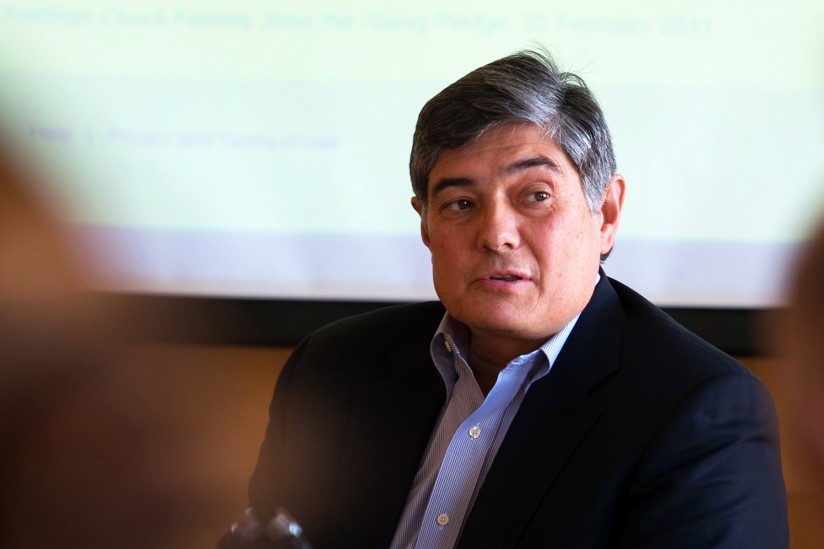Philanthropic CEO Explains Notion of ‘Giving While Living’
Resource type: News
USC Center on Philanthropy hosts Chris Oechsli, who covers his foundation’s plans to give away its money
By Matthew Kredell

Chris Oechsli, president and CEO of The Atlantic Philanthropies (Photo/Tom Queally)
A recent trend in philanthropy has people with wealth wanting to see their money make a significant impact while they are alive, rather than leaving behind a foundation as a lasting legacy.
At the forefront of this practice is The Atlantic Philanthropies, which will become the largest organization to intentionally shut its doors by giving away all of its money by the end of 2016.
The USC Center on Philanthropy and Public Policy hosted Chris Oechsli, president and CEO of The Atlantic Philanthropies, on March 26 to discuss the foundation’s plans to accelerate its impact as the life of the foundation comes to an end. Two dozen philanthropic leaders from across Los Angeles attended the conversation.
Limited-life giving
Chuck Feeney, who made his fortune as a founder of the Duty Free Shoppers Group, founded Atlantic in 1982 and in 1984 transferred the bulk of his wealth to the foundation. In 2000, he led the board to make Atlantic a limited-life organization in an effort to see the endowment invested in his lifetime. Feeney turns 84 later this month.
“Giving while living is a phrase that Chuck uses about limited-life philanthropy,” said Oechsli, explaining Feeney’s philosophy. “He uses what he calls big bets with the notion that if you act sooner and act in a big way, you can have an accelerated impact. There’s also the belief that there will always be more wealth that’s going to be devoted to philanthropy in the future, so why wait? Put your money to good use now.”
Oechsli was joined by Atlantic chief communications officer David Morse, an adjunct faculty member at the USC Annenberg School for Communication and Journalism, and chief operating officer David Sternlieb, who together are working to ensure that there is a legacy in their work. Part of that is to share the processes, adaptations and mistakes they have made in leading the first foundation of its size to take this route.
“The work of Chris and his team is on the vanguard of philanthropic strategy, from how they are helping to execute Chuck Feeney’s vision of accelerated impact to the bigger bets they are taking on transformational change to their long-standing work trying to influence public policy,” said James Ferris, director of USC’s Center on Philanthropy and Public Policy. “Atlantic is doing the kind of work that our center was set up to study. This was a great opportunity for us to learn from them and share their insights with other philanthropic leaders.”
Giving billions and billions
Atlantic already has given away about $7 billion with a focus on sparking systemic reform and attacking the root causes of problems in seven countries on a variety of issues, including disadvantaged children, aging, human rights and population health. Its average grant is $1 million, and some have reached as much as $350 million.
Oechsli noted a powerful sense of urgency and significance within Atlantic as the foundation decides how it will allocate its remaining $600 to $700 million, with grantmaking to cease in 2016 and the foundation doors to close in 2020.
“I think most of us are stimulated by the fact that we have larger sums available to do more sooner,” Oechsli said. “That is a very energizing and powerful concept.”
Feeney is known for avoiding publicity of his philanthropic endeavors. For the first half of Atlantic’s history, its grantmaking was done anonymously. That philosophy has changed as Atlantic gets closer to turning out the lights, leading to events such as this to generate discussion on accelerated giving.
“We really want to know what we can share from our experience that would be useful to practitioners, academics and emerging philanthropists who are increasingly considering a limited-life approach,” Oechsli said.